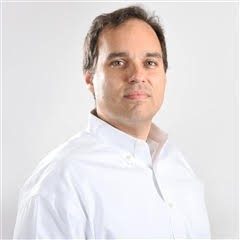JCRC Scene
Matt Goldberg
 There is no getting around the fact that national elections are a breeding ground for animosity and grudge-holding. This year was no exception.
There is no getting around the fact that national elections are a breeding ground for animosity and grudge-holding. This year was no exception.
It felt like we were in election mode for well over a year. (In fact, we were!) During that time, we have seen divisions in this country the likes of which we have not known during our lives. Statistics bear that out.
Politically, we are more tribal. We consume news sources that corroborate our views of the world. We are less likely to have friends of different political persuasions.
There are many reasons for these divisions. No matter what they are, though, we are in a bad place, and it is unsustainable.
It’s not just politics either. The pandemic has exacerbated these divisions in the Jewish community. When I see a massive Jewish wedding in Brooklyn, where thousands of unmasked people celebrate as though they have never heard of the coronavirus, I get angrier, more embarrassed and more resentful than seeing others outside our community flouting these rules. It consumes me, and I am sure I am not the only one who feels this way.
In many ways, Israel has become a mirror image of us. Its political divisions have gotten more acute with each passing election (and there have been three in the last 18 months, with another likely to take place this spring).
Every day, thousands protest in front of Prime Minister Benjamin Netanyahu’s residence, demanding that he resign. Members of the Knesset align and realign their political parties, attempting to deny the PM job security, blasting his tenure and insisting that he not be allowed to continue in his position.
And yet, his Likud is the most popular political party in the country, and he is projected to most likely be PM again when new elections are held. As fed up as so many Israelis are at the thought of another term for Netanyahu, it is the most likely scenario, one that would widen the gulf between Israelis of different political persuasions.
The same COVID-related divisions we have here are occurring there. Some, though not all, ultra-Orthodox leaders have flouted tough restrictions by keeping their schools open and conducting large mass gatherings at weddings and funerals.
It is a cliché, of course, to say that what unites us is stronger than what divides us. Even if we inherently know we must look past our divisions, doing so while holding such intractable feelings (political or otherwise) is challenging. Year after year, as division gets worse, it becomes harder to see how things can change in any meaningful way.
However, paraphrasing the Talmud, we are not required to complete the task of repairing the world, but neither are we allowed to desist.
We can start with our own behavior, making conscious efforts to be more understanding and accepting of those with differing views.
As we approach the new year, I will make a pledge to take stock and work at remembering what unites us as Americans, as Jews, and as citizens of the world. Join me in taking this small step.
Have a happy, safe and healthy new year. May we see each other, in person – in a new light – very soon.
(Matt Goldberg is director of the Jewish Community Relations Council.)


